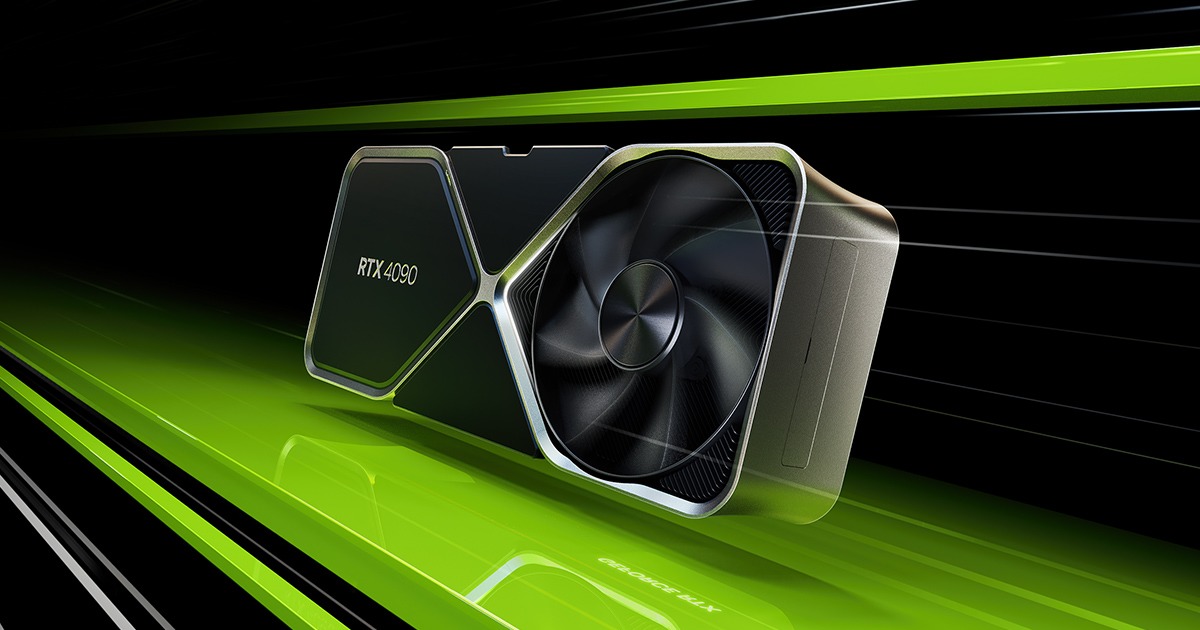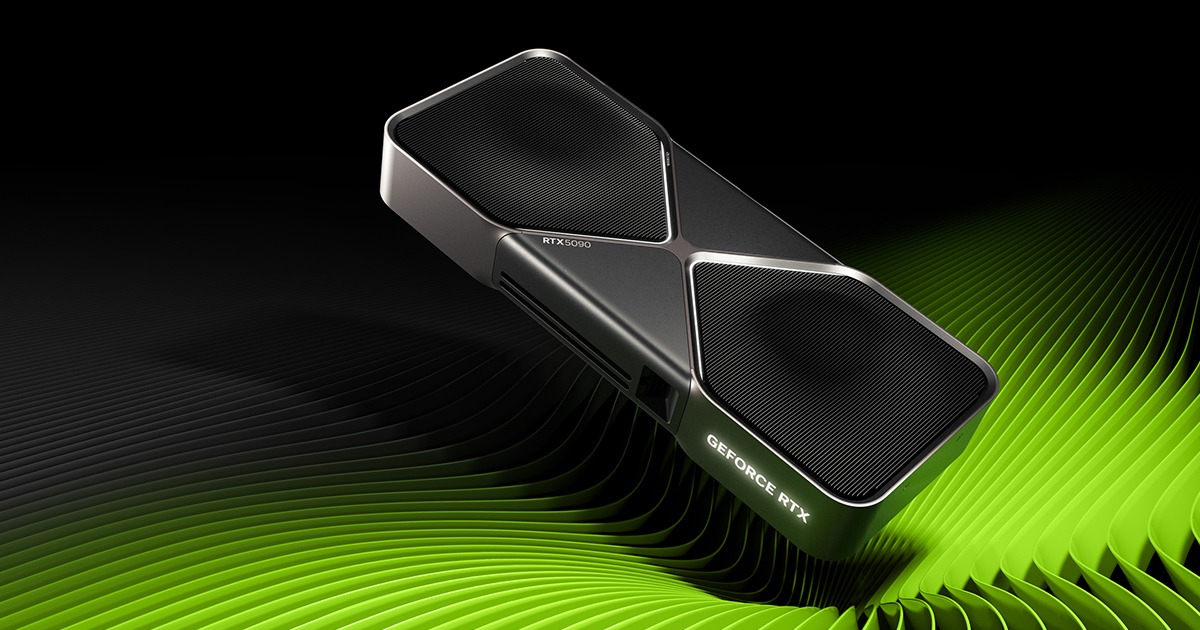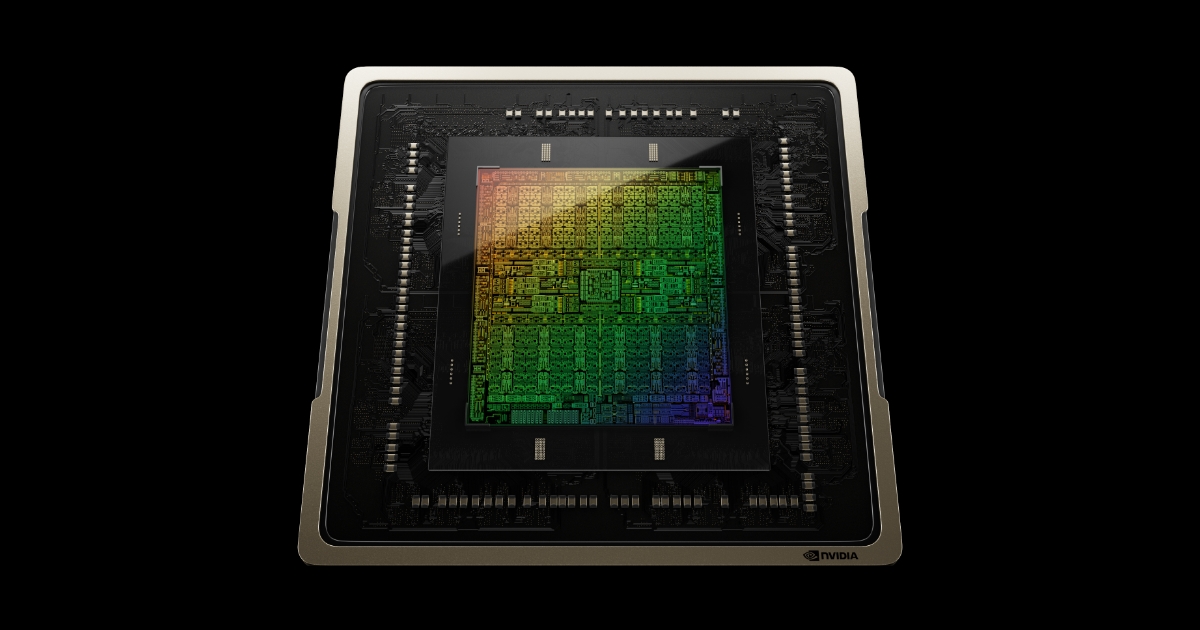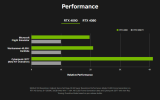You are using an out of date browser. It may not display this or other websites correctly.
You should upgrade or use an alternative browser.
You should upgrade or use an alternative browser.
- Status
- Not open for further replies.
DavidGraham
Veteran

Base clocks 2.5GHz .. expect actual clocks to reach 2.8GHz ~ 2.9GHz ..
davis.anthony
Veteran
That RT improvement seems insane.
200 RT-Flops for the 4090 vs 78 RT-Flops for the 3090ti.
Prices aside, AMD better have made some serious headway with their ray tracing performance with RDNA3 to stand a change of getting close to what Nvidia offers.
And I always said, the brand that offers the best ray tracing performance for my budget will get my money, raster performance is second on my priority list now.
200 RT-Flops for the 4090 vs 78 RT-Flops for the 3090ti.
Prices aside, AMD better have made some serious headway with their ray tracing performance with RDNA3 to stand a change of getting close to what Nvidia offers.
And I always said, the brand that offers the best ray tracing performance for my budget will get my money, raster performance is second on my priority list now.
D
Deleted member 2197
Guest
Ampere is phased out of DLSS 3? A huge bummer tbh.
 This table clearly shows Ampere will be phased out and left at DLSS 2. Wasted tensor potential before it can even be properly used.
This table clearly shows Ampere will be phased out and left at DLSS 2. Wasted tensor potential before it can even be properly used.

The Ultimate GeForce GPU Comparison
Learn what’s changed with the last four RTX and GTX Graphics Cards Series.
www.nvidia.com
D
Deleted member 2197
Guest

The Ultimate GeForce GPU Comparison
Learn what’s changed with the last four RTX and GTX Graphics Cards Series.
www.nvidia.com
450W 4090 24GB $1600 128 SM
320W 4080 16GB $1200 76 SM
285W 4080 12GB $900 60 SM
The 4080 rebrand instead of calling it a 4070 despite massively different specs is very scummy.
However a very interesting part - 2x 8th gen NVenc encoders for Ada vs 1 encoder previous generations. Response to Intel's dGPU encoders?
*4080 16GB looks like the "spend more to get the 4090" GPU and the 4080 12GB looks like they were stuck between a 4070 and wanting to make more money, they didn't want a $900 4070 so they called it a 4080 instead
Last edited:
DegustatoR
Legend

Yep. And NVIDIA official performance graphs have DLSS3 frame generation enabled for RTX 40
View attachment 6986
Well that's far less exciting than it seemed at first. So it's not really 3-4x faster in RT unless you use the new DLSS3 frame generation? I'm struggling to understand the above numbers tbh. If it's twice as fast in rasterization at native then what is DLSS3 bringing here? And if it's only twice as fast with DLSS3, then what are they doing with all those extra transistors? Based on the spec alone we should b expecting a 2x speedup without frame generation.
D
Deleted member 2197
Guest
I think there will BC for DLSS 3 on Ampere but without the new DLSS Frame generation feature.Ampere is phased out of DLSS 3? A huge bummer tbh.
This table clearly shows Ampere will be phased out and left at DLSS 2. Wasted tensor potential before it can even be properly used.
The Ultimate GeForce GPU Comparison
Learn what’s changed with the last four RTX and GTX Graphics Cards Series.www.nvidia.com
I hope that they don't leave DLSS 2 in the dust at least. Otherwise it's dead hardware in the future.I think there will BC for DLSS 3 on Ampere but without the new DLSS Frame generation feature.
The rasteration numbers are with DLSS too.Well that's far less exciting than it seemed at first. So it's not really 3-4x faster in RT unless you use the new DLSS3 frame generation? I'm struggling to understand the above numbers tbh. If it's twice as fast in rasterization at native then what is DLSS3 bringing here? And if it's only twice as fast with DLSS3, then what are they doing with all those extra transistors? Based on the spec alone we should b expecting a 2x speedup without frame generation.
gamervivek
Regular
Waiting for 48GB Titan AL announcement...
DegustatoR
Legend
Why are people assuming that frame generation will bring 2x+ framerate improvement? Their comparisons were with "RTX Off" meaning native rendering, then "RTX On" meaning DLSS Performance + frame generation. We don't know yet how much performance the latter adds.Well that's far less exciting than it seemed at first. So it's not really 3-4x faster in RT unless you use the new DLSS3 frame generation? I'm struggling to understand the above numbers tbh. If it's twice as fast in rasterization at native then what is DLSS3 bringing here? And if it's only twice as fast with DLSS3, then what are they doing with all those extra transistors? Based on the spec alone we should b expecting a 2x speedup without frame generation.
Last round of rumors starting with 4080 12GB was on point.Were any of the rumours even remotely correct? The 4080 16GB is 320W.
Everything prior to that? Nah.
- Status
- Not open for further replies.
Similar threads
- Replies
- 177
- Views
- 39K
D
- Replies
- 90
- Views
- 17K
- Replies
- 20
- Views
- 6K


